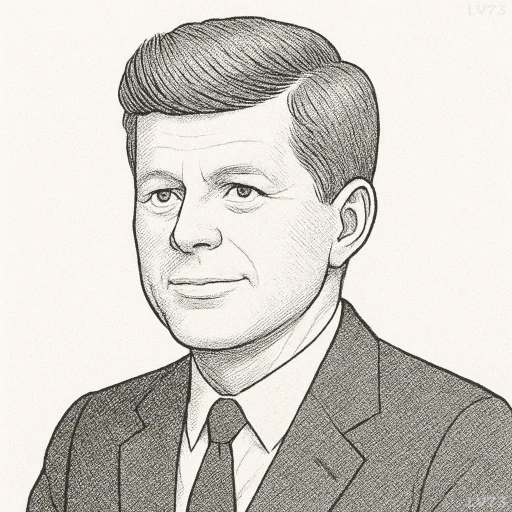“There are many people in the world who really don’t understand—or say they don’t—what is the great issue between the free world and the Communist world. Let them come to Berlin!”

- May 29, 1917 – November 22, 1963
- American
- Politician
table of contents
Quote
“There are many people in the world who really don’t understand—or say they don’t—what is the great issue between the free world and the Communist world. Let them come to Berlin!”
Explanation
In this remark, John F. Kennedy is addressing the ideological divide between the free world—largely represented by the United States and its Western allies—and the Communist world, dominated by the Soviet Union. He points out that there are people who either do not grasp the significance of this conflict or choose to ignore it. His answer to this lack of understanding is Berlin, the symbolic and physical frontline of the Cold War. The city of Berlin was divided into East and West by the Berlin Wall, which stood as a visible representation of the Iron Curtain separating Communist and non-Communist Europe. By inviting people to come to Berlin, Kennedy suggests that the division of the city, and the suffering of those living under Communist rule in the East, can serve as a stark and undeniable example of the real stakes of the Cold War.
Kennedy delivered this statement during a speech in 1963, when tensions between the East and West were at their peak. The Berlin Wall had been constructed in 1961, cutting off East Berlin from the West, and symbolizing the broader global struggle between democracy and communism. Berlin itself was a divided city—half under Western democratic influence, the other half under Soviet-controlled communist influence. For those in the West, Berlin represented the vitality and freedom of the capitalist world, while for those in the East, it was a city of oppression and restriction. By referencing Berlin, Kennedy was not just talking about geography, but about the ideological war between freedom and totalitarianism, and he emphasized that seeing Berlin firsthand would make the reality of that struggle clearer than any abstract political argument could.
Today, Kennedy’s words still carry significance, especially in the context of global struggles between authoritarianism and democracy. The collapse of the Soviet Union and the fall of the Berlin Wall in 1989 showed the eventual triumph of the free world over Communism in Europe. However, the division between democratic and authoritarian regimes continues to exist in various parts of the world. As we witness ongoing conflicts related to freedom of expression, civil rights, and democratic governance, Kennedy’s call to see the real impact of ideological battles—whether through physical symbols like the Berlin Wall or modern equivalents like the Great Firewall of China—reminds us that the fight for freedom and human dignity remains as relevant as ever. His reference to Berlin serves as a historical lesson on the importance of standing for freedom and justice in the face of oppression.
Would you like to share your impressions or related stories about this quote in the comments section?



